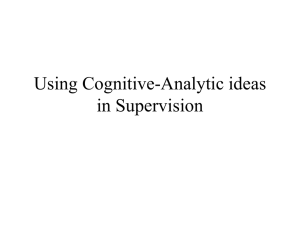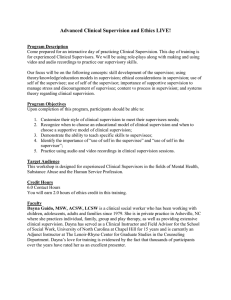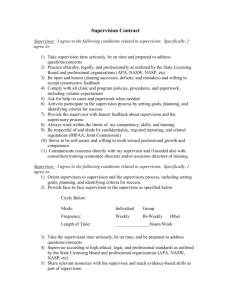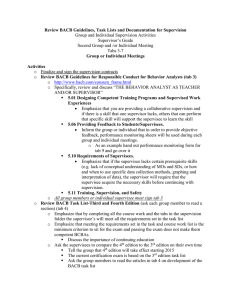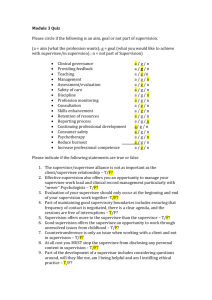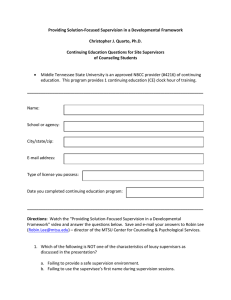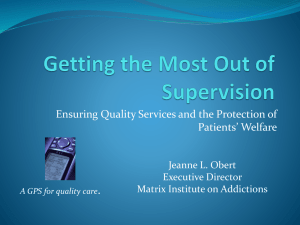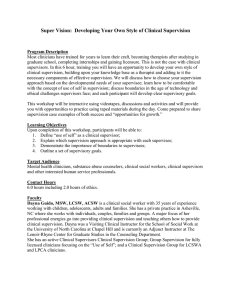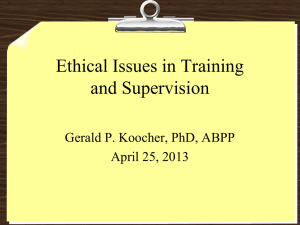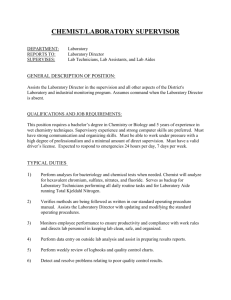Clinical Supervision & Wellbeing: Presentation
advertisement
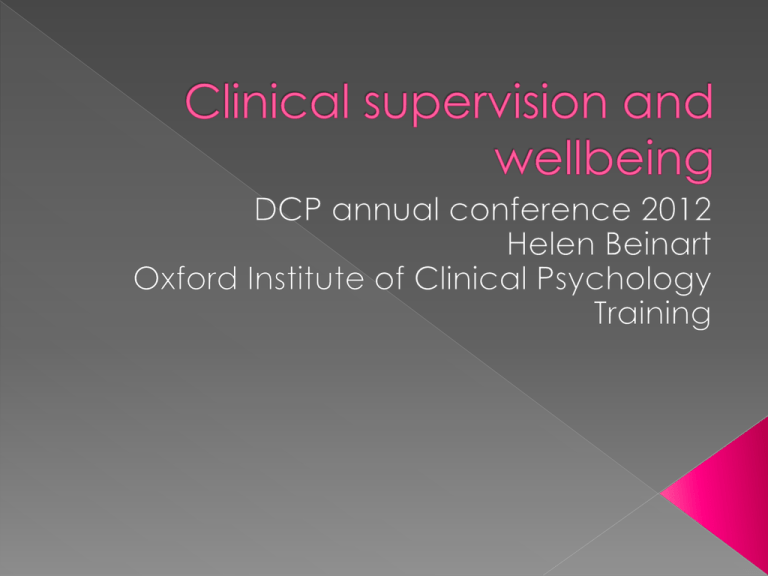
Increased demand and uncertainty Changes to job/employment security Service impacts Personal impacts Trust boards urged to act on staff wellbeing (HSJ, 28 – 11 -12) Professional role shift to broader roles: Supervision, leadership, consultancy Clinical task is to support/restore wellbeing in others (individual, groups, families, teams) Restorative role in supervision (Inskipp & Proctor, 1993) Focus on well-being of supervisee in order to support and care for others Supervisor’s well-being and support is also important Complexity of workload Size of caseloads Understaffing Job insecurity Lack of supportive manager Poor role clarity Lack of social support (Burrows & McGrath 2000, Gardner & O’Driscoll, 2007) Social support Autonomy Feedback Good supervisory relationship (SR) (Bakker, et al 2005) Self-awareness/monitoring Preserving a balance between personal/professional life (Coster et al 97) Supportive functions of supervision Managing workload, balance Space to reflect, self-monitor Regular, balanced feedback integral Shown to buffer stress (Bakker, et al 2005) High-quality SR (poor SRs have detrimental effect) The SR is crucial to effective supervision Not all SRs are effective Poor SRs can be damaging (Ladany, 2011) Limited research into what contributes to effective SRs 6 pieces of major research on the quality of the SR Beinart (2002) – mixed methodology supervisees Palomo (2004) – quantitative study - Supervisory Relationship Questionnaire (SRQ)- supervisees Frost (2004) – Longitudinal IPA study – supervisors and supervisees Clohessy (2008) – Grounded Theory study – supervisors Pearce (2010) – quantitative study – Supervisory Relationship Measure (SRM) – supervisors Borsay (2012) – qualitative study –supervisees 8 attempts to manage problems in the SR Core qualities of effective SRs: › boundaried & safe › supportive › respectful › invested/committed › open & trusting › collaborative › sensitive to supervisee needs › educative/evaluative › Influenced by context 9 Importance of establishing a safe base Influence of context › Individual characteristics of supervisee/supervisor (personal stressors, cultural characteristics) › Team/service (contributions to/demands/constraints) 10 Supervisor investment in supervision & in the supervisee Supervisee openness to learning & development Flow of supervision (virtuous cycle) 11 To build resilience (capacity to withstand stresses and demands) in self and others Linked to job satisfaction, performance, motivation, social competence A good SR supports development of skills to meet challenges of changing environments (Rothman 2004) Essential to protect clinical supervision and promote its value in enhancing staff well-being

